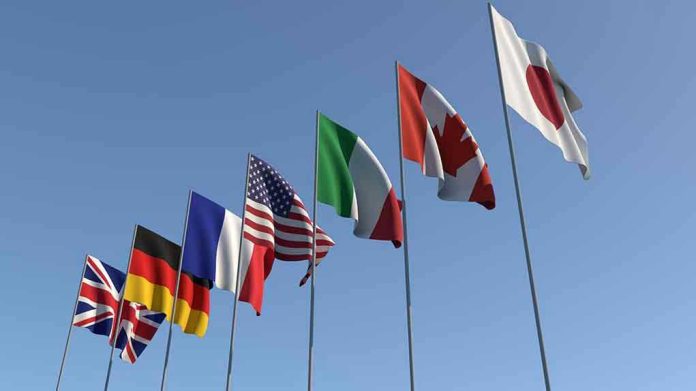
Italy is making a bold move to secure its energy future by inking a $15 billion deal with the U.S. for natural gas, but what does this mean for Europe’s reliance on Russian energy?
At a Glance
- Italy signs a $15 billion LNG deal with the U.S., marking a significant shift in its energy strategy.
- This 20-year agreement is part of Italy’s broader effort to reduce dependence on Russian gas.
- The deal strengthens U.S.-Italy relations and impacts ongoing EU-U.S. trade negotiations.
- ENI, Italy’s state-controlled energy giant, is at the forefront of this strategic energy shift.
Italy’s Strategic Energy Shift
Italy’s decision to purchase $15 billion worth of U.S. natural gas is a strategic maneuver aimed at diversifying its energy sources. With the memory of Europe’s overreliance on Russian energy still fresh, this long-term contract with Venture Global marks a significant pivot. ENI, Italy’s state-controlled energy titan, is leading the charge, aiming to secure a stable and predictable energy future. This move comes as a direct result of the 2022 Russian invasion of Ukraine, which laid bare the vulnerabilities of energy dependency. The agreement underscores Italy’s commitment to reducing its reliance on Russian gas and ensuring energy security.
The 20-year contract will see Italy importing 2 million metric tons of LNG annually from Venture Global’s Calcasieu Pass 2 project in Louisiana. This is not just a win for Italy but also a boon for the U.S. energy sector. The deal supports American jobs and infrastructure, reinforcing the U.S. position as a global energy leader. Italian Prime Minister Giorgia Meloni’s recent meeting with President Trump in April 2025 further cemented this energy alliance, highlighting a shared vision for a secure and diversified energy future.
Economic and Political Implications
The deal’s implications stretch far beyond energy security. It plays a crucial role in ongoing EU-U.S. trade negotiations, particularly as the European Union grapples with potential 30% tariffs on exports to North America. By increasing American energy imports, Italy positions itself favorably in these talks, potentially easing trade tensions. Moreover, this agreement sets a precedent for other European nations to follow suit, further eroding Russia’s grip on Europe’s energy supply.
Italy’s bold move is also a strategic play in the broader context of geopolitical resilience. By diversifying its energy sources, Italy not only secures its own future but also contributes to a more robust and independent European energy market. The U.S., in turn, gains a stronger foothold in European energy affairs, using its LNG exports as leverage in broader trade discussions.
The Road Ahead: Opportunities and Challenges
While the deal is a triumph for U.S.-Italy relations and a step toward energy security, it is not without challenges. The long-term reliance on LNG exposes Italy and other European countries to global price volatility. Critics argue that this could undermine efforts to transition to renewable energy sources, highlighting the need for a balanced approach that includes investments in emissions-reducing technologies.
Nevertheless, ENI’s ambition to grow its LNG portfolio to 20 million tons per annum by 2030 signals a commitment to being a major player in the global energy market. This strategy aligns with the broader European push for energy diversification and independence. As Italy navigates this complex landscape, the success of this deal will depend on its ability to balance energy security with environmental responsibility.



